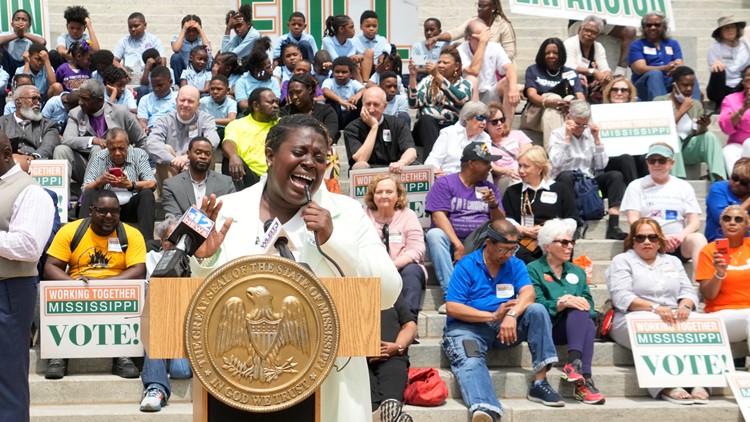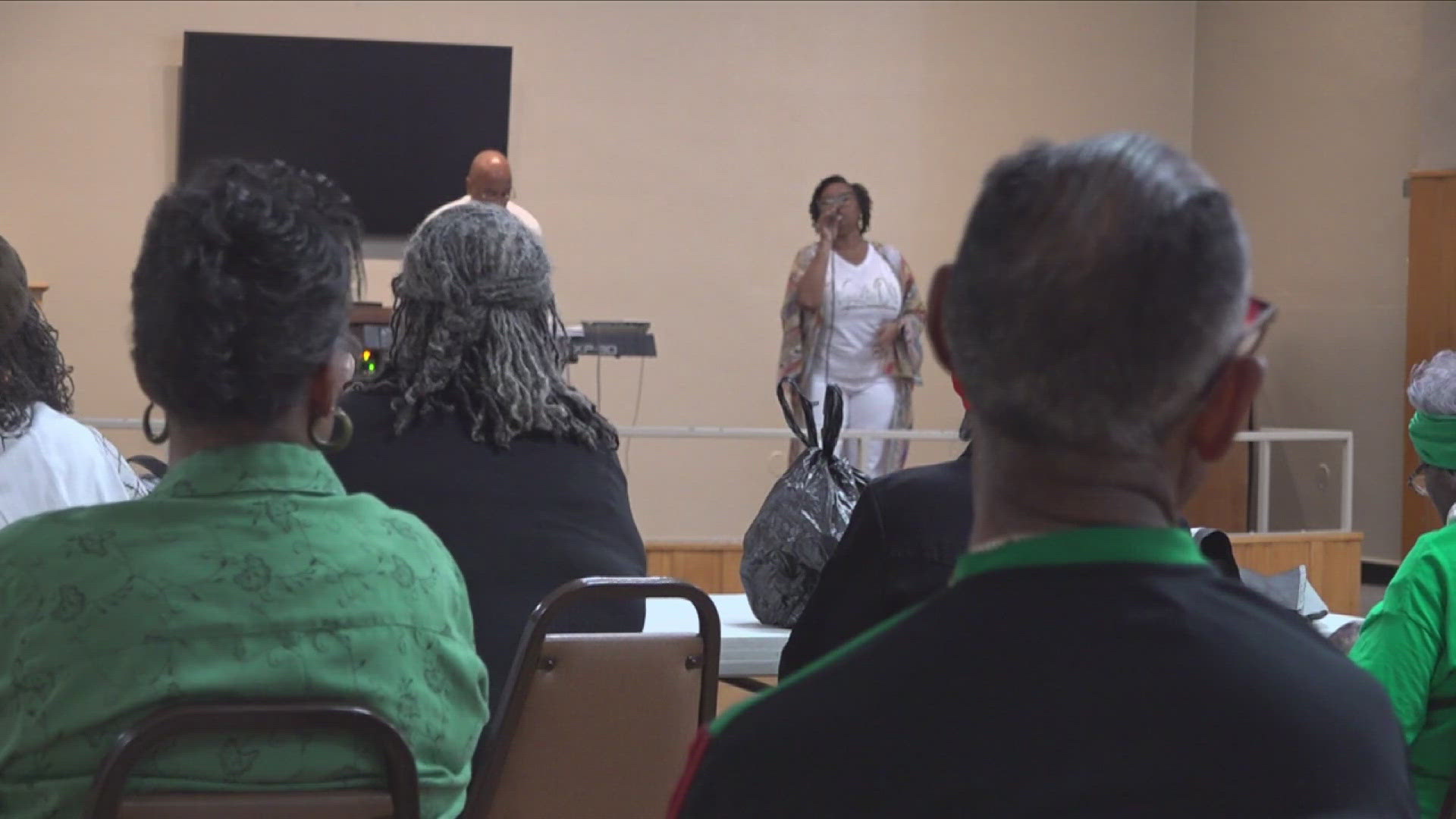JACKSON, Miss — JACKSON, Miss. (AP) — A coalition of advocates rallied for full Medicaid expansion Tuesday at the Mississippi Capitol as lawmakers prepare to negotiate a final plan that could extend health care coverage to tens of thousands of residents in one of the poorest states in the U.S.
Members of Working Together Mississippi — a coalition of religious and nonprofit groups — said lawmakers face an economic and moral imperative to ensure more citizens gain access to health care coverage. In recent weeks, they and other advocacy groups have accelerated public campaigns as top lawmakers aim to reach a consensus on what would be a landmark shift in the state's health care policy.
“We urge the House and the Senate to find a compromise that takes full advantage of the federal funding that will move our state from 50th in most health outcomes and would save our hospitals,” said the Rev. Gregory Divinity of New Vineyard Church in Utica.
Against a backdrop of signs emblazoned with “Full Expansion," speakers on the Capitol steps called for lawmakers to pass a bill that covers people earning up to 138% of the federal poverty level, as the House did, rather than a competing Senate proposal that would only cover people earning up to 100% of that threshold.
The pressure campaigns come as lawmakers have agreed to begin negotiations, with three members from each chamber trying to iron out a final product.
House Medicaid Committee Chairwoman Missy McGee, a Republican, said her approach could extend benefits to as many as 200,000 people. Senate Medicaid Committee Chairman Kevin Blackwell, also a Republican, said the Senate's plan could make 80,000 people eligible for expanded coverage, but he estimates that only about 40,000 would enroll.
The Senate plan also includes a stricter work requirement unlikely to be approved by President Joe Biden's Administration. This would make the state ineligible for an additional $700 million from the federal government that is otherwise available if Mississippi fully expands Medicaid.
Mississippi’s Republican-controlled Legislature is considering Medicaid expansion after years of opposition to the policy allowed under the Affordable Care Act, a 2010 federal health overhaul signed by then-President Barack Obama. Speaker Jason White’s ascension to the top leadership position this year helped pave the way for consideration of Medicaid expansion.
Mississippi has the highest rate of preventable deaths in the U.S. Its top health official has said it ranks at the bottom of virtually every health care indicator and at the top of every disparity. Hospitals are struggling to remain open. The state also has one of the nation’s lowest labor force participation rates. Expansion proponents have said the policy could help ameliorate these conditions.
Opponents of Medicaid expansion say the program would foster government dependency, increase wait times for health services and push people off private insurance. Republican Gov. Tate Reeves opposes expansion and has launched public and private pressure campaigns to dissuade senators from supporting the policy.
Reeves is likely to veto the legislation if it reaches his desk. Lawmakers could override his veto with a two-thirds vote from the House and Senate.
Policy analysts from the Hilltop Institute, a Maryland-based health care research organization, have also circulated a proposed compromise plan among key lawmakers. That plan would address those who make between 100% to 138% of the poverty level by using federal money to help them purchase private insurance plans through Mississippi’s state health care exchange. The institute estimates the plan would provide coverage for 197,000 people.
On Tuesday, Leaders from Christian, Jewish and Muslim institutions argued that full expansion makes economic sense and is the correct moral stance, regardless of one's party affiliation.
“I was warned as a Southern Baptist Republican that this issue, expanding Medicaid, might possibly brand me as a liberal,” said Pastor Jeff Parker of Southside Baptist Church in Jackson. “My response was simple: You Christians ... cannot have it both ways. You hold to conservative fiscal policies in government (while) you tighten the grip of our government on humanitarian expenditures.”
___
Michael Goldberg is a corps member for the Associated Press/Report for America Statehouse News Initiative. Report for America is a nonprofit national service program that places journalists in local newsrooms to report on undercovered issues. Follow him at @mikergoldberg.



